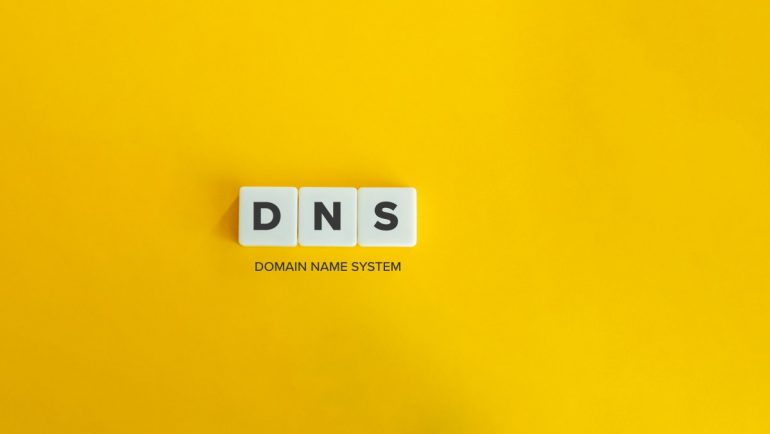Charity contributions to the Switzerland-based public, free DNS resolver Quad9 increased by 900 percent after the Hamburg Regional Court made the blocking decision known. Meanwhile, Quad9 announced that it would defend itself against the injunction. The opposing counsel and the court meanwhile see no significant difference between the operator of an access provider, a CDN and a recursive resolver.
With a ruling of May 12, 2021, the Hamburg Regional Court issued an injunction against Quad9 and, when threatened with fines or imprisonment, forced it to withhold DNS resolution of a domain, according to Sony Germany. , was infringing copyright. The Quad9 is being used as a disruptor, similar to the previous procedure brought by the Sony firm against Cloudflare.
years of international inquiry
Sony Germany’s legal representative, Clemens Rasch, when asked by Heise Online, designated the page containing the blocked request as “structurally infringing copyright”. On the website in question, “unauthorized offers of copyrighted music recordings are aggregated, structured by categories and offered for download via ShareHosters,” Rash said.
Of course one tries to defend himself against the real criminals, he assured, “if they can be determined.” However, there is no imprint or abuse link on the website, and connections to operators are unknown.
Hosters in Lithuania or Ukraine and the Sharehosters involved will not respond to blocked requests for e-mails or inquiries via web forms. IP addresses, which incidentally are still accessible without any problems, you still haven’t found. Incidentally, the provider has been operating an “illicit business model” for 22 years, according to Rash. Even years of international investigations by the Public Prosecutor’s Offices could not change this.
Filter request filtered
Copyright hunters had the non-commercial Quad9 on the slip from the start. According to Rash, Quad9 was first contacted on March 23, the same time the actual “criminal” and only by email. According to Rash, the court’s ruling contained “a typo” regarding timing. Ironically, email fell victim to mail filters. Machine-generated spam emails are filtered directly by their email provider, said Bill Woodcock of Quad9 when asked. “We never got that.”
According to a spokesman for the court, the court considered that Quad9 had an effective opportunity to consider and investigate the facts of the case, and “under the circumstances established by the applicant”, the Chamber considered the shorter time frame appropriate in this case. . However, as usual in the immediate proceedings, “facts made credible by the applicant party were used as grounds” and it was held that “the letters submitted by the applicant party were not only sent but also reached their recipients”. Were.” Setting an appropriate time frame only played a role if the Quad 9 wanted to pull it off and there was an argument about whether Sony gave it enough opportunity to do so. It is not so in the present case.
example
Quad9 also sees more in the process. According to the current press release, the foundation sees this as an attempt to set a dangerous precedent and “involve unrelated and technically distant third parties to enforce legal claims”. In his update Quad9 writes on the status of the proceedings. The claims of the copyright holders are recognized indisputably, but they have nothing to do with this dispute.
“Ultimately, the presumption of the Order is that Content should be blocked on demand, provided that there is a technical possibility for either party to block access to the Content, regardless of the cost involved or the likelihood of success.” Malware and virus filters are optionally offered for free by Quad9, for which trusted third parties provide lists, ensuring the safety of the free resolver’s end users. The filter requests from private companies could not be realized through the donation-funded service, Woodcock says.
If the Hamburg resolution was to be tolerated as Quad9 warned, then in the future other “third parties”, such as anti-virus, firewall, browser or operating system provider, and others may also be used. “Our objection has nothing to do with any material, but is rather directed against the fact that the costs and risks of such enforcement measures are passed on to third parties without any consideration,” emphasizes Quad 9 is.
cdn, dns-provider, recursive resolver
Lawyer Rasch and the press spokesman for the Hamburg courts both point out that there is already another precedent for the upcoming legal dispute. Last December, the High Regional Court in Cologne upheld a decision when Cloudflare had to stop copyright infringements that you documented at the request of the rights holders. Unlike in the case of Quad9, site operators were contract customers of Cloudflare CDNs.
Quad9, on the other hand, naturally does not have any affiliation with the operators, hosters or share host platforms of the websites. “Our system resolves domain names and transmits public information over a publicly accessible Internet like any other resolver,” defends the company.
Why the non-commercial company should not be covered by the liability privilege of the Telemedia Act now needs to be re-explained in court. OLG Cologne ruled that a resolver did not provide access nor the actual information on the pages. Instead, the resolver simply triggers an IP address query. Well since Quad9 is not involved at all, the liability privilege should not apply.
page still accessible
Last but not least, it’s bittersweet for Quad9 that the assaulted content is still available without issue through a variety of channels.
Several German providers, such as Deutsche Telekom, Vodafone and 1&1 have recently issued voluntary copyright locks. The provider and certain rights holders are members of the CUII Copyright Clearinghouse on the Internet, which was established at the beginning of the year and has blacklisted three domains in collaboration with the Federal Network Agency. A precedent ruling against Quad9 could increase pressure on Internet infrastructure providers to engage in this system of “co-regulation”.
Sanctions remain an ineffective instrument, regardless of who wins in the current legal dispute. People have long been asked to use a different domain name or switch to Google’s recursive DNS servers, or DNS via HTTPS, in favor of alleged music thieves filtered by Quad9 and CUII members.
(BME)

Reader. Organizer. General creator. Zombie fanatic. Alcohol advocate. Food junkie. Bacon ninja.





